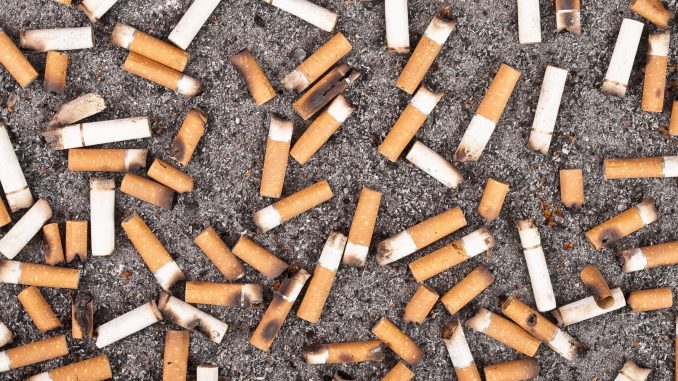
Smokers, beware! The cigarette butts you discard may be causing metal contaminants to leach into the marine environment and potentially enter our food chain, a new study has found.
Cigarette butts are the most common form of litter found in the marine environment, with an estimated 5 trillion or so discarded outdoors around the globe every year.
Previous research had also suggested that metals could leach from cigarette butts.
To gain an understanding of the potential implications, levels of metals in cigarette butts were monitored at nine different locations along the north part of the Persian Gulf in the Bushehr seaport coastal areas during the summer of 2015.
The metals assessed included cadmium, iron, arsenic, nickel, copper, zinc and manganese from discarded cigarette butts in the top 10cm of sediment and deposited at the tidal mark on the beaches.
Researchers from Bushehr University of Medical Sciences and Shahid Beheshti University of Medical Sciences in Iran measured the metal content twice, with a period of 10 days in between, to gauge the potential impact of marine currents on levels.
There was little significant change in levels between the two assessments, irrespective of where the samples had been taken.
Metal content is likely to vary according to the cultivation and growth of the tobacco leaf and the application of pesticides and weed killers.
Additional metals may be added during cigarette manufacture and/or during the application of brightening agents on the wrapping paper, researchers said.
Cigarette filters, which are made of cellulose acetate, may act like other plastics in providing a conduit to transport metals in marine environments, they suggest.
The response of animal and plant life to metal content is highly variable, researchers said.
“Whereas elevated concentration of heavy and trace metals in water and soils can adversely affect some species, contamination may increase the metal tolerance of other organisms,” they said.
“Considering the estimated amount of cigarette butts littered annually (4.95 trillion), the release of metals from littered cigarette butts in the marine environment may increase the potential for acute harm to local species and may enter the food chain,” they added.
More research is needed to understand fully the leaching behaviour of metals from cigarette butts into the marine environment.
The research was published in the journal Tobacco Control.
Source: India Today

Leave a Reply